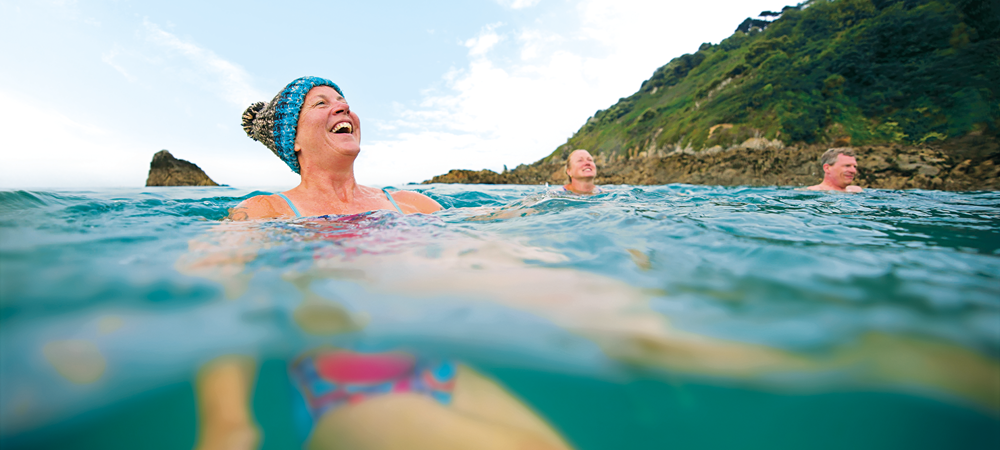Testing on day 7 for arrivals to be piloted
The Civil Contingencies Authority has decided that a 7-day test for the virus that causes COVID-19 with early release from 14 day mandatory self-isolation only on receipt of a negative result will be piloted for arrivals into Guernsey for a one-week period in July.
24 June 2020
An absolute cap of 1376 arrivals in total, coming in on a limited and specified number of Condor Ferries and Aurigny services between the 5th and 10th July will be required to self-isolate for 14 days, with a test for COVID-19 on the 7th day. Provided the test returns negative, arrivals would be released from self-isolation on the 8th day, or as soon as a negative result becomes available. Those travelling through Guernsey to Alderney and Sark will not be eligible to take part in the pilot at this stage in line with the decisions of those jurisdictions.
Between days 8 and 14, those leaving self-isolation will be subject to 'passive surveillance' meaning they will be asked to report any symptoms, no matter how mild. Anyone experiencing any symptoms will be asked to be tested again. All in this group will also be asked to limit their contact with other people as much as possible, for example avoid going to restaurants during this time. This approach balances the health protection risk of infection with the wider health and wellbeing needs of the population.
While the incubation period for the coronavirus is understood to be between 2 and 14 days, data shows more than 80% of cases would be identified after 7 days. Coupled with passive surveillance and the Bailiwick's track and trace system, the risk of this approach is felt to be very low. However, before introducing 7-day testing as the norm, this pilot is being carried out first to help ensure its effectiveness and to gather the requisite evidence to support any such decision.
Dr Nicola Brink, Director of Public Health said:
"We have been led by data throughout our response to the pandemic. Now that we have reached Phase 5 we have been looking at possible modelling of a shorter period of compulsory self-isolation when entering Guernsey. This is particularly important for those who need to travel off-island for treatment or to see loved ones. This 7-day test approach is our preferred option and has been independently peer-reviewed. We're confident it is the best, lowest-risk option, but we do recognise there is no model that is completely without risk. Equally we know that 14 days of self-isolation is a big ask for some people, with some reporting to me that particularly in the second week of self-isolation, it is affecting their mental wellbeing. We need to balance the risks of the virus with the other health impacts on individuals. Managing this pilot in a controlled way is our best solution to test what will work for us. If we do get a case we must not see this as a step backwards, we are very well equipped to respond in this controlled environment. "
Deputy Heidi Soulsby, member of the Civil Contingencies Authority said:
"Our borders have been and will continue to be our strongest defence in keeping COVID-19 from returning to our community. But as a result of enhancing our testing capacity, together with having an experienced contact tracing team, we have in place enough protective measures to be confident in going ahead with a pilot for testing on day 7."
The pilot for testing on day 7 is one of a number of measures that form the first steps towards phase 6. Discussions are ongoing with the Isle of Man on the possible formation of an 'air bridge' between the jurisdictions. If this can be implemented, and proves successful it may pave the way for more air bridges with other places that have very low or no cases of COVID-19.
Deputy Gavin St Pier, Chair of the Civil Contingencies Authority said:
"Unless there are very rapid developments in a vaccine or treatment for COVID-19, which is possible but by no means certain, we will need to take a staged approach to reaching phase 6 of our Exit from Lockdown, with a series of risk-controlled measures brought in gradually and carefully that together will allow increased travel off-island.
As Dr Brink has said, we also need to think about the welfare of those already needing to travel and how 14-days of self-isolation impacts them. If we can help safely relieve the difficulties they are going through, the CCA firmly believes that is right to do so, given that the law requires that all restrictions must be proportionate to the risk being managed.
However we must move forward carefully as the cautious, conservative approach we've taken so far has served us incredibly well. That is why the testing on day 7 is being trialled in coordination with Condor and Aurigny. Everyone travelling during the pilot is still subject to 14 days mandatory self-isolation in accordance with current law. Only those who travel on one of the limited number of specified flights or sailings involved in the pilot will be able to have the test after 7 days. Understandably many in our community are concerned about border control but I can reassure you that the Civil Contingencies Authority will not make any change to the 14 day self-isolation requirement until we're confident the pilot has been a success and has provided the evidence required to offer us an alternative way forward."
COVID-19 travel guidance: https://covid19.gov.gg/guidance/travel

